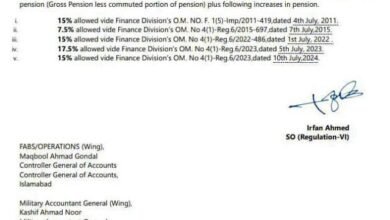Khyber Pakhtunkhwa’s Government plans to outsource 4,147 schools
Contents
Khyber Pakhtunkhwa Schools: What Outsourcing 4,147 Schools Means for the Future

Breaking news: Khyber Pakhtunkhwa’s government plans to outsource 4,147 schools in just 15 days. Learn how this decision impacts education, districts, and the community.
Introduction
In a swift and significant move, the government of Khyber Pakhtunkhwa (KP) has completed preparations to outsource a staggering 4,147 schools. This groundbreaking decision, finalized in just 15 days, is set to reshape the province’s educational landscape. The rapid pace of this initiative has sparked intense discussion and curiosity about its potential effects. What does this mean for students, teachers, and the broader community? In this post, we’ll dive into the details of this initiative, exploring the structure of the new committee, the districts most affected, and what the future holds for these schools.
This unprecedented step, which involves handing over the management of a significant number of educational institutions, aims to streamline operations and potentially improve educational standards. A committee will be formed at the district level to oversee the process, ensuring a structured and accountable transition. The move has put the spotlight on regions like Bannu and Mansehra, where a large number of schools are included in the list to be outsourced. Understanding the scope of this project is crucial for anyone invested in the future of education in Khyber Pakhtunkhwa.
How the Outsourcing Process Will Work
To manage this massive undertaking, the KP government is establishing a new, streamlined committee structure. A key part of the plan is the formation of a district-level committee, which will be chaired by the Deputy Commissioner. This committee will serve as the central authority for all outsourcing decisions and implementation.
The committee’s structure is designed to ensure efficiency and local oversight. The District Education Officer (DEO) and the District Monitoring Officer (DMO) will serve as both conveners and members. This dual role ensures that both educational and administrative aspects are considered during the process. The goal is to create a robust and accountable system that can manage the transition smoothly and effectively.
- Chairperson: Deputy Commissioner
- Conveners & Members: District Education Officer (DEO) and District Monitoring Officer (DMO)
This committee-based approach is expected to provide local expertise and ensure that the unique needs of each district are addressed. The swift formation of these committees reflects the government’s commitment to completing the outsourcing of 4,147 schools within the announced timeframe.
Districts at the Forefront of the Initiative
The impact of this decision is not uniform across all districts of Khyber Pakhtunkhwa. Some regions are set to see a far more significant transformation than others. According to the data, Bannu tops the list with the highest number of schools being outsourced, signaling a major shift in its educational system.
Here’s a breakdown of the districts with the largest number of schools on the outsourcing list:
- Bannu: 416 schools
- Mansehra: 374 schools
- Abbottabad: 202 schools
- Haripur: 191 schools
- Dera Ismail Khan (D.I. Khan): 191 schools
In stark contrast, some districts have a minimal number of schools included. For example, Bajaur has the least number of schools set for outsourcing, with only four on the list. This disparity highlights the targeted nature of the program, focusing on areas where the government believes outsourcing will have the most significant impact. The sheer scale of the project in these top-ranking districts makes this a truly transformative event for education in Khyber Pakhtunkhwa.
Potential Benefits and Challenges
The decision to outsource thousands of schools is a bold move with both potential benefits and inherent challenges. Proponents of the plan argue that it could lead to improved management, better resource allocation, and higher educational standards. By bringing in external expertise, the government hopes to address long-standing issues such as teacher absenteeism and a lack of proper infrastructure.
On the other hand, critics raise concerns about the potential for commercialization of education, job security for existing staff, and the quality of education delivered by private entities. The success of this initiative will largely depend on the transparency and accountability of the district-level committees and the private partners selected. A comprehensive regulatory framework will be essential to ensure that the primary goal remains providing quality education to the children of Khyber Pakhtunkhwa.
- Potential Benefits: Improved administration, better infrastructure, and enhanced learning outcomes.
- Potential Challenges: Commercialization of education, job uncertainty for teachers, and maintaining quality control.
Frequently Asked Questions (FAQs)
Q1: What does it mean to “outsource” a school?
Outsourcing a school means transferring its management and operations to a third-party organization, often a private company or a non-profit group. The government retains ownership but delegates the day-to-day running of the institution to an external entity, aiming to improve efficiency and educational quality.
Q2: Which districts have the most schools being outsourced in Khyber Pakhtunkhwa?
The district with the highest number of schools being outsourced is Bannu, with 416 schools on the list. Other districts with a significant number include Mansehra (374), Abbottabad (202), and Haripur (191).
Q3: Will teachers lose their jobs due to this decision?
The immediate impact on teacher employment is a major concern. While some contracts may be restructured under the new management, the long-term goal is to improve the educational system, which could lead to new opportunities and better training. The specific details regarding job security will likely be addressed by the newly formed committees.
Q4: How was the list of 4,147 schools finalized so quickly?
The preparations for the outsourcing of 4,147 schools were completed in a rapid 15-day period. This suggests the government had a pre-existing framework or criteria in place for identifying schools for this initiative. The process involved data analysis and strategic planning to fast-track the decision.
Q5: Who will be on the district-level committee for outsourcing?
The district-level committee will be chaired by the Deputy Commissioner. The District Education Officer (DEO) and the District Monitoring Officer (DMO) will also serve as key members and conveners. This composition is designed to ensure both administrative and educational expertise are represented.
Q6: Is this initiative unique to Khyber Pakhtunkhwa?
While outsourcing in the education sector isn’t new globally, the scale and speed of this specific initiative in Khyber Pakhtunkhwa are notable. The province is taking a bold and rapid approach to address its educational challenges, making this a unique and closely-watched project within the region.
Q7: How will the community be involved in this process?
Community involvement is crucial for the success of such a large-scale project. While the current plan focuses on forming a committee, local parents and community leaders will likely be engaged in the process as it progresses. Their feedback and support will be vital for a smooth transition and better outcomes for students.
Conclusion
The swift decision to outsource 4,147 schools in Khyber Pakhtunkhwa marks a pivotal moment for education in the province. With a new committee structure led by Deputy Commissioners and comprising DEOs and DMOs, the government is moving rapidly to implement its vision. While the move is intended to improve educational outcomes, it also brings a host of questions and concerns. The success of this initiative will be measured not just by its speed, but by its long-term impact on students and the quality of education they receive. As the district committees begin their work, the spotlight will be on the outcomes in places like Bannu, Mansehra, and Abbottabad.
What do you think about this major change? Share your thoughts on the outsourcing of schools in Khyber Pakhtunkhwa in the comments below!
بریکنگ نیوز 💥 خیبرپختونخواہ کے 4147 سکولوں کو15 دن میں آؤٹ سورس کرنے کی تیاری مکمل
سکولوں کو آؤٹ سورس کرنے کے لیے ضلعی سطح پر ڈپٹی کمشنر کی سربراہی میں کمیٹی قائم کی جائے گی۔
کمیٹی میں ڈسٹرکٹ ایجوکیشن آفیسر DEO اور ڈسٹرکٹ مانیٹرنگ آفیسر DMO بطور کنوینیر اور ممبر ہوں گے۔
بنوں مانسہرہ کے 416 سکولوں کے ساتھ لسٹ میں ٹاپ پر
ایبٹ آباد کے 374 ،ہری پور کے 202 اور ڈیرہ اسماعیل خان کے 191 سکول آؤٹ سورس ہونے والے سکولوں کی لسٹ میں شامل ہیں۔جبکہ سب سے کم باجوڑ کے 4 سکول آؤٹ سورس کیے جائیں گے








